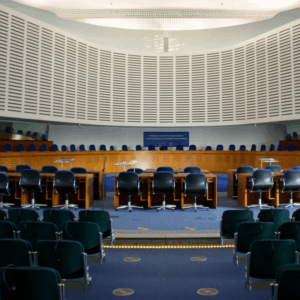
«We will protect your rights and inviolability of your honor and dignity!»
Lawyer
Expert in the field of criminal, administrative and civil law. Specializes in military crimes and crimes in the financial sector
FREEDOM OF SELF-DISCRIMINATION IN THE PRACTICE OF THE EUROPEAN COURT
 Today, the violation of the principle of freedom from self-disclosure and the right not to testify against close relatives and family members is a fairly common case law. This has been repeatedly brought to the attention of not only national courts but also the European Court of Human Rights.
Today, the violation of the principle of freedom from self-disclosure and the right not to testify against close relatives and family members is a fairly common case law. This has been repeatedly brought to the attention of not only national courts but also the European Court of Human Rights.
Thus, the ECtHR indicates at least 3 types of situations of violation of the accused person's freedom not to testify against himself:
1) when the duty to testify under the law threatens to impose a sanction (such as the case of Sounders v. The United Kingdom), or the person is charged with the obligation to prove his or her innocence - at the "reverse" burden of proof;
2) when coercion is applied to a person, pressure, which can be both physical (example - the case "Yalloch v. Germany") and psychological (example - case "Gefgen v. Germany");
3) when coercive coercion is applied to a person using covert investigative techniques (an example is the case of Allan v. The United Kingdom).
Thus, in the case of Nechiporuk and Yonkalo v. Ukraine, the violation of the principle of freedom from self-disclosure and the right not to testify against close relatives and family members, as the conviction against the applicant was based in large part on the testimony of the accused, who the first were obtained in the absence of a defender, and the second were forbidden torture.
In Funke v. France, the ECtHR explained that "the right to remain silent" means not only the freedom from false statements, but also the right not to be held accountable for refusing to provide other evidence to prove one's guilt. In the case, it was found that the customs services, without being able to obtain the presumptive documents themselves, tried to compel the applicant to submit them.
The opposite is the case in Saunders v. The United Kingdom, which states that the right not to testify against itself does not extend to the use in the criminal proceedings of material that may be obtained from a coercive defendant, material that exists irrespective of the suspect's will, such as documents obtained on a warrant, being forced to breathe into an alcohol-respiratory tube, blood tests, urine, skin samples for DNA analysis, through available legal procedures such as temporary access to things and a document ing.
The ECtHR draws attention, in particular, to the nature and extent of coercion used in the taking of evidence in order to establish the violation of freedom from self-disclosure and the right not to testify against close relatives and family members; the importance of public interest in investigating and punishing a criminal offense; availability of appropriate safeguards in the applicable procedure; the use of materials thus obtained.
National legislation also addresses this principle. Thus, in a ruling of December 5, 2011, the Supreme Court of Ukraine noted that the reliability of evidence would be undermined if it was obtained in violation of the right to silence and the privilege against self-disclosure.
As to the facts of the case, the Court recalled that L.M. made his confession during the interrogation as a witness and, unlike the suspect or accused who had the right to remain silent, the witness was obliged to report everything known to him under the threat of criminal penalties.
Given that LM's confessional testimony, given in the absence of procedural safeguards against self-disclosure, was used to establish the facts which were relevant to the applicant's actions, the Court found that the rights of the defense were restricted, which undermined the fairness of the process as a whole. .
Local courts are also paying attention to the principle of freedom from self-disclosure. For example, the Petropavlovsky District Court of Dnipropetrovsk region stated in its sentence that it could not take into account the protocol of conducting the investigative experiment of 05.02.2016, because, in the court's opinion, this investigative action was conducted with violation of the right of these persons not to testify against themselves.
A similar decision was made by the Kozeletsky District Court of Chernihiv Oblast: “… the statement of January 21, 2016 and the protocol of January 21, 2016 must be declared inadmissible, since the violations of the suspected PERSON_1's guarantees of self-disclosure, the violations of the person's right to remain silent and the right not to witness oneself".
The Vinnytsia City Court of Vinnytsia Oblast stated that Article 18 of the CPC of Ukraine guarantees to every person the freedom from self-exposure and the right not to testify against close relatives and family members. According to the materials of the criminal proceedings, which were provided to the court by his parties, the charge presented is based solely on his guilty plea to the crime he was charged with. There was no objective data to indicate that the latter had duly notified the existence of the judgment and the enforcement proceedings.
Therefore, we see that in the decisions taken by the courts, the verification of compliance with this principle is one of the central places.
Calculate the price of assistance:
1 question
Have other lawyers handled your case?
2 question
Are you in Kyiv or Kyiv region?
3 question
Do you need legal assistance urgently?
Other articles on this topic:
call back
during the day




